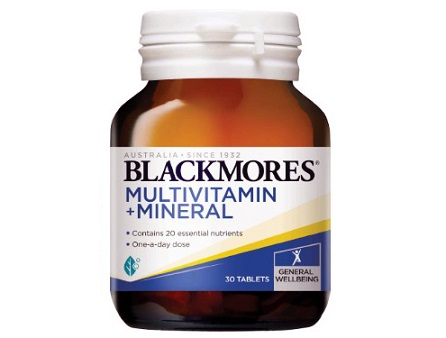Australian Study Finds That Multivitamins Do Not Improve Clinical Outcomes in Community-Acquired Pneumonia
Nikhil Prasad Fact checked by:Thailand Medical News Team Nov 24, 2024 1 year, 2 months, 1 week, 1 day, 8 hours, 32 minutes ago
Medical News: A new Australian study has called into question the effectiveness of multivitamin supplements in improving clinical outcomes for patients hospitalized with community-acquired pneumonia (CAP). Despite the widespread use of multivitamins as a preventative or supportive health measure, researchers found no significant impact on recovery or treatment outcomes among CAP patients taking these supplements.
 Australian Study Finds That Multivitamins Do Not Improve Clinical Outcomes in Community-Acquired Pneumonia
The Study at a Glance
Australian Study Finds That Multivitamins Do Not Improve Clinical Outcomes in Community-Acquired Pneumonia
The Study at a Glance
The research was led by a team from the Flinders Medical Centre, Flinders University, and the University of Adelaide. This
Medical News report delves into the details of their findings, offering insights into a topic of growing interest amidst rising healthcare challenges.
The study analyzed 8,162 patients admitted to two major Australian hospitals - Flinders Medical Centre and Royal Adelaide Hospital - between 2018 and 2023. Researchers specifically examined patients admitted for non-COVID-related CAP, excluding those who had contracted pneumonia in a hospital setting or had concurrent COVID-19 infection. Only 6.9% of these patients reported multivitamin use at the time of admission.
Key Findings
Multivitamin Users vs. Non-Users
Patients who took multivitamins were generally younger and exhibited higher levels of frailty and comorbidity than their non-supplementing counterparts. They were also more likely to smoke, consume alcohol, and belong to a higher socioeconomic status group. Interestingly, despite their poorer health profiles, multivitamin users were less likely to present with severe CAP.
No Impact on Outcomes
The study utilized advanced statistical tools such as propensity score matching to account for confounding factors. Key clinical outcomes—length of hospital stay (LOS), ICU admission rates, in-hospital mortality, and 30-day readmission rates—showed no statistically significant differences between multivitamin users and non-users.
For example:
-The adjusted odds ratio (aOR) for LOS was 0.14 (95% CI 0.03–5.98), suggesting no meaningful reduction in hospital stay duration.
-Mortality rates and ICU admissions were similarly unaffected by multivitamin supplementation.
The Role of Micronutrients in Pneumonia
Nutritional deficiencies, especially those involving vitamins C, D, and E, are thought to impair immune responses, potentially increasing susceptibility to respiratory infections like CAP. Previous studies have suggested that these deficiencies could influence recovery, but robust evidence is lacking. While vitamin C levels were notably higher in the multivitamin group, this improvement did not translate into better clinical outcomes.
One explanation offered by researchers is that the levels of
vitamins provided by standard multivitamins may be insufficient to meet the heightened demands of a body fighting severe infections. High-dose vitamin C, in particular, might be required to exert significant anti-inflammatory effects, which typical multivitamin formulations cannot achieve.
Why the Findings Matter
Multivitamin supplements are commonly marketed as essential for maintaining immunity and overall health, yet their actual benefits in acute conditions like CAP remain unproven. This study underscores the need for caution when using over-the-counter supplements as a complementary therapy in serious illnesses.
Dr. Yogesh Sharma, the study’s lead author, noted, “While multivitamin use was more prevalent among patients with chronic conditions, our findings indicate no discernible benefits in terms of recovery or mortality outcomes in CAP.”
Looking Ahead
The researchers called for more targeted studies focusing on individual vitamins rather than broad-spectrum multivitamin supplements. They suggested that further trials investigating higher doses of specific nutrients, such as vitamin C or D, could clarify their role in managing pneumonia and other acute infections.
Limitations of the Study
While comprehensive, the study had its limitations:
-Serum levels of specific vitamins were not measured, making it difficult to evaluate whether patients were deficient despite taking supplements.
-Compliance with multivitamin use prior to hospitalization was not assessed.
-The study relied on hospital pharmacy data, which might not capture all over-the-counter supplement use.
These factors highlight the need for further research with more controlled conditions to validate the findings.
Conclusions
The study’s findings are a wake-up call for patients and healthcare providers who rely on multivitamins for managing illnesses like pneumonia. While multivitamins are a popular choice for supplementing diets, their benefits in improving outcomes for CAP appear limited.
“Further prospective studies are essential to determine whether specific high-dose vitamin interventions can improve clinical outcomes in hospitalized patients,” the authors concluded.
The study findings were published in the peer-reviewed journal: Nutrients.
https://www.mdpi.com/2072-6643/16/23/4009
For the latest on Multivitamins and Pneumonia, keep on logging to Thailand
Medical News.
Read Also:
https://www.thailandmedical.news/news/herbal-supplements-sold-in-america-especially-for-covid-19-found-to-contain-substandard-or-undeclared-ingredients-and-had-misleading-claims
https://www.thailandmedical.news/news/beware-supplement-news-many-supplements-sold-online-in-various-shopping-platforms-bearing-american,-canadian-and-australian-brands-are-fakes
https://www.thailandmedical.news/news/stay-away-from-mlm-or-direct-sales-companies-selling-health-supplements-or-wellness-programs
https://www.thailandmedical.news/news/research-shows-all-testosterone-boosting-supplements-are-fakes
